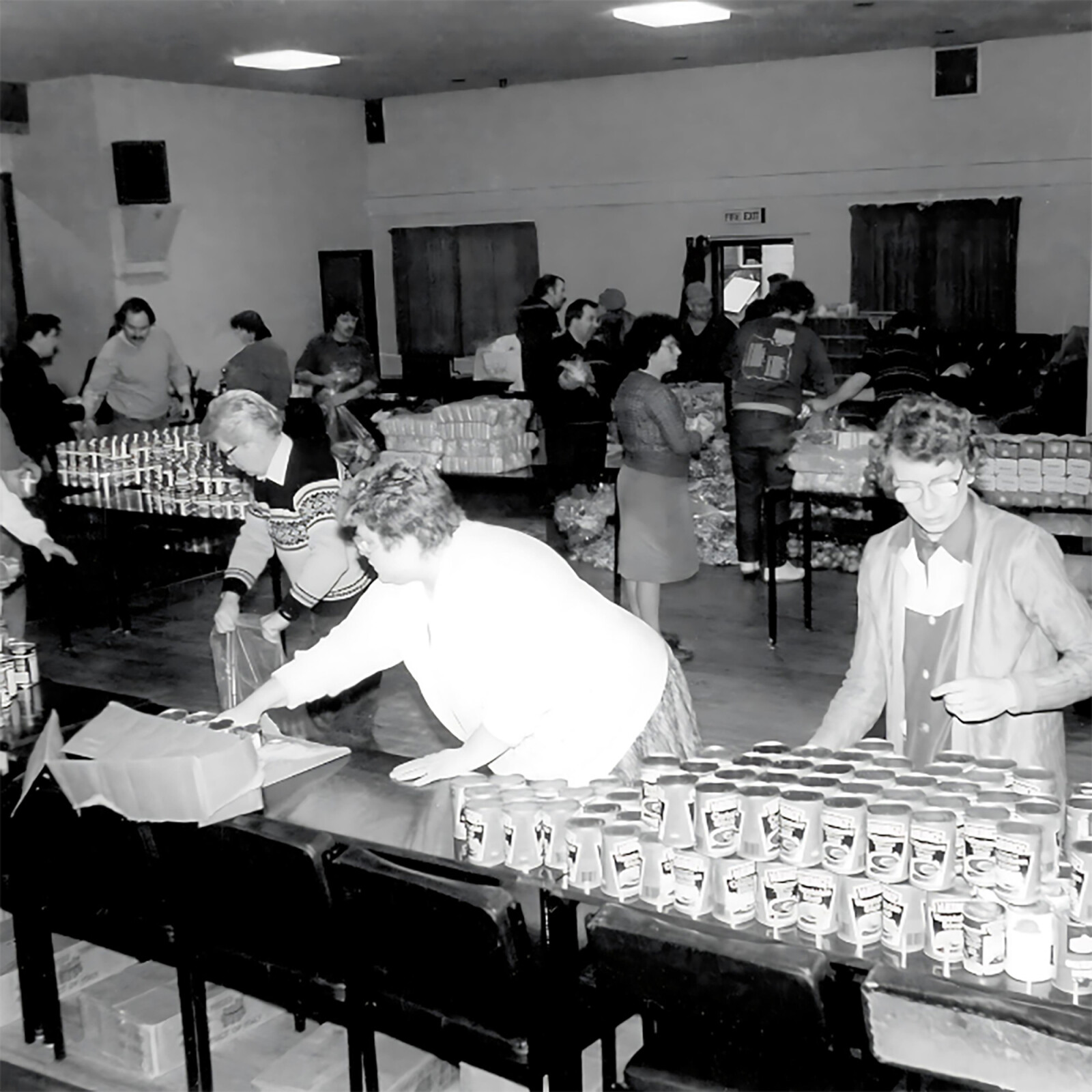Strike Stories: Rhian and Betty Philips
, 18 December 2024
In this series of Strike Stories we hear the highs and lows of that life changing year through the eyes of miners, families, police officers and politicians as they recall what life was like in 84–85.
The Strike Stories form part of the Streic 84–85 Strike exhibition which is on display at National Musem Cardiff until April 27 2025.

Rhian
We were some of the lucky ones, because Dad had a trade. He’d been a builder, before he went to work at cwm coke colliery so he went out looking for work around our community. Our neighbour was amazingly kind and found him some jobs in his house and with other family members and that helped tide us over and my brothers, who were bigger than me, still talk about how tough it was and they’d mix cement and do other bits and bobs after school and on the weekends, to help him.
The garden became really important – vital to us keeping food on the table.
I was only little – four – and my biggest memory of it all was of having the best Christmas I could ever have imagined. In our family we talk still about it being the best one ever. What we didn’t know at the time was that the whole community pulled together to make sure every family had a lovely Christmas. I had the Sindy house, furniture including kitchen bathroom, bedroom, and dining table and sofa. And a horse, cart and dog – and a My Little Pony! They pulled out all the stops.
Betty
My husband had spent 28 years working at the colliery, in Beddau. During the strike, each week, Friday, we’d get a box delivered – with flour, corned beef, and other groceries to help us get through the week. The whole community in our valley pulled together to provide for every family.
We were lucky. A family with three kids, we certainly felt the impact. My husband had a trade before the colliery – he was a bricklayer – and thanks to the kindness of our neighbour, who hired him to work, firstly on his house and then on his mother in law’s, we had some income to tide us over.
We had to manage on what we had. Everyone did. But it didn’t stop us having the best Christmas my kids ever had. Friends gathered together and bought gifts so the kids had presents on Christmas morning. We still talk about it.
We pulled through. After the pits closed some of the men never worked again – there was nowhere to work and then other factories and things went, too, like Revlon, Silent Channel and Louis Edwards – all gone. So, the valley emptied as people left find to work elsewhere, Bridgend, Cardiff, or further afield.
There was a lot of upheaval. We were devastated by the strike, we had no idea it’d last that long. The devastation in this valley is permanent. Despite it all, my children have done well – but it was a very sad time and even now, there’s nothing. Nothing has been replaced in all these years since it shut down. There’s nothing left. They promise the world – and nothing changes, nothing ever gets done. The Valleys are completely shut off.
When Margaret Thatcher died, my husband hung a Welsh flag from a post outside our house. There were a lot of them, hung all across our valley.
Rhian and Betty Philips, mother and daughter of a striking miner, Maesteg.